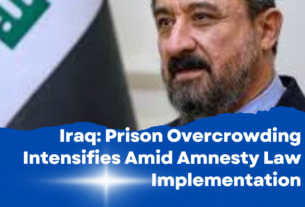The United Kingdom faces a critical juncture in its national security strategy, with leading experts cautioning that the country is “sleepwalking into a bloody ambush” that could jeopardize its sovereignty by 2034. The recently published Strategic Defence Review outlines significant reforms, including an ambition to increase defence spending to 3% of GDP and a focus on integrating advanced technology. However, Prime Minister Keir Starmer’s reluctance to commit to a definitive timeline for achieving these targets has raised concerns among defence analysts and NATO allies alike, potentially undermining the UK’s deterrence posture against Russia.
Dr Simon Bennett of the University of Leicester highlights the urgency of the situation, contrasting the UK’s current approach with that of countries like Poland, which plans to allocate 4.7% of its GDP to defence this year in response to the ongoing Russian threat. Bennett argues that the UK should immediately increase defence expenditure to at least 4% of GDP to ensure national security is not compromised. Similarly, Keir Giles of Chatham House stresses that while the review sets forth ambitious objectives, these risk remaining aspirational unless accompanied by clear funding commitments and swift implementation.
Beyond financial considerations, the review acknowledges the importance of enhancing public awareness and resilience, a dimension that experts assert has been neglected for decades. Both Bennett and Giles emphasize the necessity of cultivating a ‘war mentality’ and preparing a ‘war economy’ capable of sustaining prolonged conflict if necessary. Educating the public on the nature and scale of threats, particularly those posed by Russia’s espionage and political interference, is considered essential to strengthening national resilience.
Russia views the UK as a principal adversary, especially given London’s prominent role in supporting Ukraine. Its tactics extend beyond conventional warfare to include covert operations such as espionage, sabotage, and interference in democratic processes. The National Security Act 2023 represents a legislative effort to address these multifaceted threats; however, whistle-blowers like Sergei Cristo maintain that the full extent of Russian interference remains insufficiently disclosed, limiting the capacity for effective parliamentary and public responses.
Reflecting on historical precedents, experts invoke Winston Churchill’s assertion that war is an enduring aspect of human history, interrupted only by fragile interludes of peace. Failure to act decisively by increasing defence spending, enhancing military preparedness, and fostering public understanding may leave the UK vulnerable to future conflicts. While the Strategic Defence Review presents a comprehensive framework, its success hinges on political will, adequate funding, and public engagement to secure Britain’s position as a free and sovereign nation in the years ahead.




